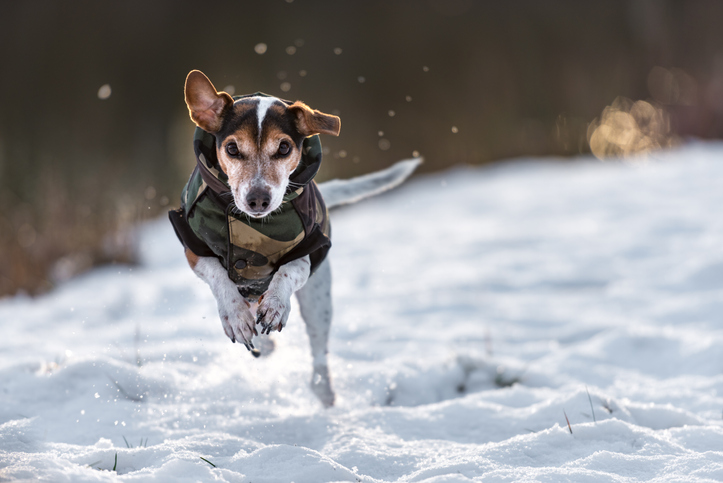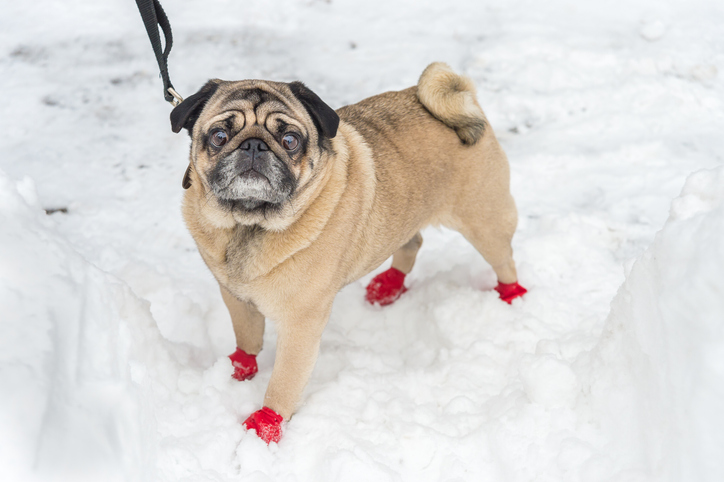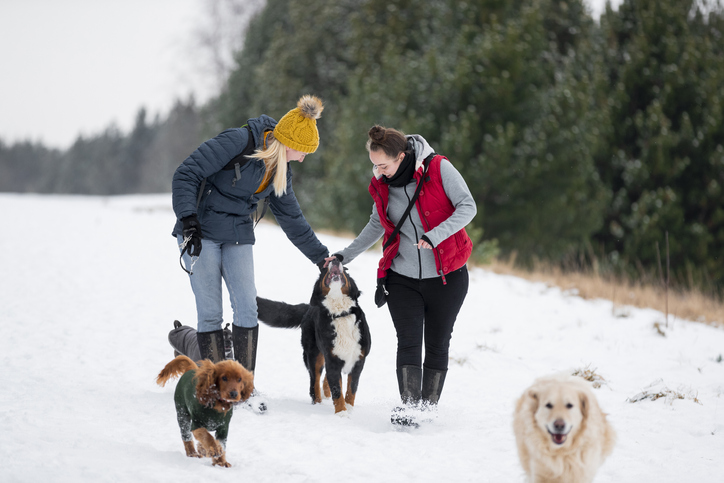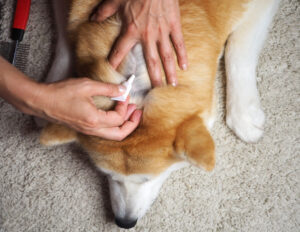As we are in the midst of winter, pet owners should be aware of the potential dangers that colder temperatures can bring. Appropriate clothing and footwear, warm and dry shelter and adequate food and water are all important components of winter pet safety.
To ensure the safety of your pets during the winter season, it is important to be aware of common winter emergencies and take steps to prevent them. These emergencies include hypothermia, frostbite, injuries from ice and snow, and chemical exposure. By knowing how to prevent these issues and seeking medical attention as needed, you can help keep your pets healthy and safe during the colder months.
By learning the symptoms and taking proactive measures, you can protect your furry friend from the dangers of winter. So if you want to ensure the well-being of your beloved pet, keep reading to discover the signs of winter-related emergencies and the steps you can take to prevent them from happening in New Jersey.
Reasons Why Winter Can Be a Difficult Season for Pets
Cold temperatures during the winter, can cause a number of health issues, such as hypothermia, frostbite, and injuries from slipping on icy surfaces. Cold weather can also make it more difficult for pets to maintain a healthy body temperature, leading to cold-related illnesses like pneumonia.

Identifying and Preventing Common Winter Pet Emergencies
Winter can be a challenging time for pets, as they are exposed to colder temperatures, snow, and ice, which can lead to a variety of health issues. It is important to be aware of these potential dangers and take steps to prevent them in order to keep your pet safe and healthy during the winter months.
Hypothermia
Hypothermia occurs when a dog’s body temperature drops below normal, typically below 100°F. It can be caused by cold temperatures, wet conditions, or a combination of both, and can be life-threatening if left untreated. Symptoms include shivering, lethargy, weakness, muscle stiffness, and difficulty breathing.
In severe cases, a dog may appear unconscious or have a weak pulse. To prevent hypothermia, provide a warm, dry place to sleep and use a pet sweater or coat in cold weather. Limit exposure to cold and wet conditions, and ensure access to shelter. Seek veterinary care immediately if you suspect your dog has hypothermia.
Frostbite
Frostbite is a serious condition that occurs when a dog’s skin and underlying tissues freeze, usually on the ears, tail, and paws. It can be caused by cold temperatures and can lead to tissue damage and death if left untreated. Symptoms include pale or gray skin, a lack of responsiveness, and pain when touched.
To prevent frostbite, limit exposure to cold temperatures, ensure access to shelter, and use a sweater or coat and pet boots in cold weather. Check ears, tail, and paws frequently for signs of frostbite, and take steps to keep them warm and dry. Seek veterinary care immediately if frostbite is suspected.
Injuries from Ice and Snow
Pets can slip and fall on icy surfaces, leading to sprains, fractures, and other injuries. To prevent these types of injuries, it is important to take precautions when walking your dog in the winter. Use a leash to keep your dog close and consider using pet-safe deicing products on sidewalks and driveways. You can also use pet boots or apply a paw wax product to provide your dog with better traction on slippery surfaces. By following these precautions, you can help keep your pet safe and healthy during the winter months.

Chemicals Used Primarily During Winter
During the winter months, a variety of chemicals are used to melt snow and ice on roads, sidewalks, and driveways. These chemicals, such as rock salt and deicing agents, can be harmful to pets if ingested. Ingestion can lead to stomach irritation, vomiting, diarrhea, and in severe cases, kidney damage. In addition, contact with these chemicals can cause irritation to a pet’s paws and skin.
To protect your pet from the dangers of winter chemicals, it is important to be cautious when using them around your home. Keep pets away from areas that have been treated with these chemicals, and consider using pet-safe deicing products. If your pet does come into contact with winter chemicals, be sure to clean their paws and skin thoroughly to prevent irritation. If you suspect that your pet has ingested a winter chemical, it is important to seek veterinary care immediately. By following these precautions, you can help keep your pet safe and healthy during the winter months.
What To Do If Your Pet Experiences A Winter Emergency
If your pet experiences a winter emergency, it is important to act quickly to seek medical attention and provide first aid as needed.
Some quick tips to consider for winter emergencies include:
- If your pet is experiencing hypothermia, gently move them to a warm and dry place, and cover them with a blanket or towel. Do not try to warm them up too quickly, as this can cause shock.
- If your pet is experiencing frostbite, gently wrap their affected areas in a warm, moist towel, and seek veterinary care immediately.
- If your pet has ingested a winter chemical, try to determine what it ingested and bring the product with you to the veterinarian.
- In the case of any injury, such as a fracture or sprain, try to keep your pet still and seek veterinary care as soon as possible.
By following these steps and seeking medical attention as needed, you can help ensure the health and well-being of your pet during a winter emergency. It is important to act quickly in these situations, as winter emergencies can be life-threatening if left untreated.
By being aware of the potential dangers and taking proactive measures to prevent them, you can help keep your pet safe and healthy during the colder months of the year. If you have any concerns about your pet’s health during the winter season, it is always a good idea to consult with a veterinarian for guidance and advice.
Conclusion
By providing warm and dry shelter, appropriate clothing and footwear, adequate food and water, and monitoring your pet’s condition, you can help ensure that your pet is safe and healthy this winter. Taking these steps will help to prevent common winter pet emergencies and keep your pet safe during the cold months.
If you have any questions about your pet’s health, please call us at (908) 359-2000 or schedule an appointment with us! Here at Harlingen Veterinary Clinic, we are ready to help you and your pet if you have a winter pet emergency.





